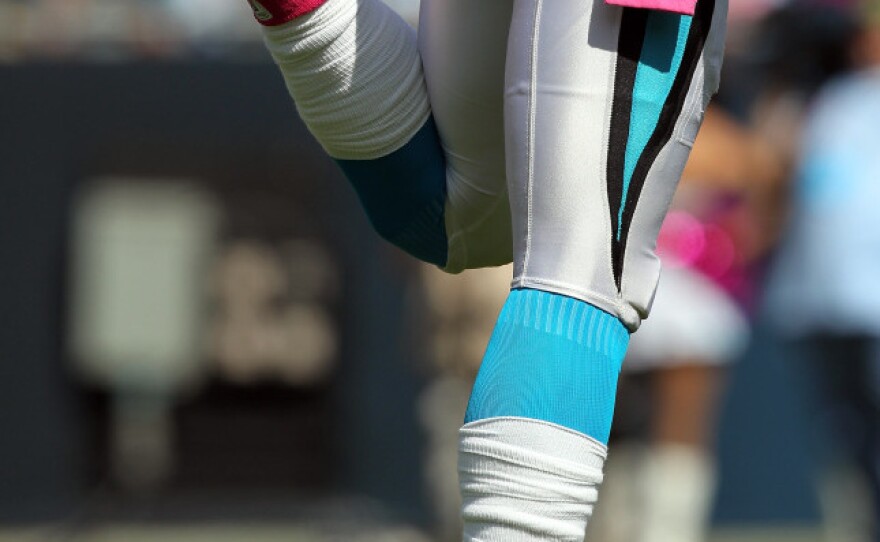It's October and one color dominates the landscape: pink, the color of National Breast Cancer Awareness Month.
Breast cancer fundraising events dominate the month, from the massive Avon walks that take place in nine U.S. cities to the international Susan G. Komen Races for the Cure. Even the White House gets bathed in pink floodlights in recognition of the campaign.
But what if your breast cancer diagnosis doesn't make you want to wear pink socks, walk for the cure or be a "warrior in pink?"
Barbara Ehrenreich's backlash against the pink-ribbon breast cancer culture began when she was in the mammogram room, waiting for her results.
"There was an ad for a pink breast cancer teddy bear," Ehrenreich, the author of 13 books, including Nickel and Dimed, and most recently, Bright-Sided: How the Relentless Promotion of Positive Thinking Has Undermined America. "That was kind of an existential turning point for me because I realized I'm not afraid of dying, but I am terrified of dying with a pink teddy bear tucked under my arm."
The women's movement Ehrenreich came out of was concerned with health issues and giving patients the power, she tells weekends on All Things Considered guest host Rebecca Roberts. The message she was seeing now seemed to say that somehow breast cancer made you "less of a person." She prefers to say she was treated for the disease rather than calling herself a survivor.
"The fact that I am alive and another woman is now dead doesn't mean I'm a better person," she says. "I didn't battle the disease more bravely — I'm lucky."
Ehrenreich says while she is pleased breast cancer is in the public eye, she expected a more questioning attitude toward treatment of the disease.
"The treatments are terribly debilitating and toxic," she says. "I can't get behind the idea of awareness, awareness, awareness when we don't have really effective and safe treatments."
Ehrenreich expresses solidarity with those who undergo breast cancer treatments, but she says the disease is not something we should ever decide we can live with as a society and turn into a growth experience.
"This is ugly, this is nasty," she says. "I want to know why it happens and stop it."
Too Much Pink?
Nancy Brinker, the woman responsible for breast cancer awareness being dressed in pink, founded the Susan G. Komen Foundation in honor of her sister – whose favorite color was pink. As ubiquitous as the color might be during the month, Brinker says it's never enough.

Cam Newton #1 of the Carolina Panthers stretching as he wears pink for breast cancer awareness during their game at Bank of America Stadium in October.
Brinker says colors have been great for disease movements — red is the color of HIV/AIDS awareness — and she is grateful that the breast cancer movement has a color.
"I think my sister would have just loved it," she says. "She really liked pink."
Perhaps pink isn't your favorite color, but what's the harm?
"The harms are partly that the awareness itself has been redefined as visibility for the sake of visibility [and] fundraising," says Gayle Sulik. "A deep awareness of the realities of breast cancer and where we really are in that war on breast cancer has gotten lost in that."
Sulik, author of Pink Ribbon Blues: How Breast Cancer Culture Undermines Women's Health, says there's often a misconception that anything with a pink ribbon on it is supporting and funding research for a cure. But in reality, she says, that isn't the case.
Sulik says people need to read the fine print, look at the organizations that receive those funds and examine what those allocations are going toward. She believes that people definitely associate pink with breast cancer, but says the branding has probably oversimplified the disease, its detection and treatment in people's minds.
"People need to know that it is more complicated and messier than that," she says.
Sulik's tagline for breast cancer awareness: "Go deeper."
Copyright 2022 NPR. To see more, visit https://www.npr.org. 9(MDAzMjM2NDYzMDEyMzc1Njk5NjAxNzY3OQ001))





